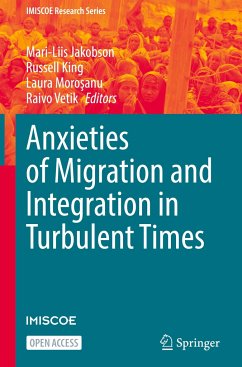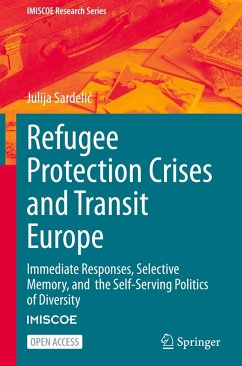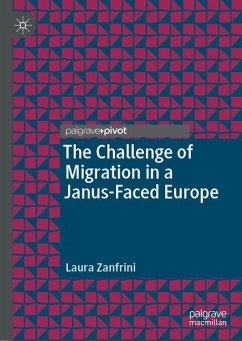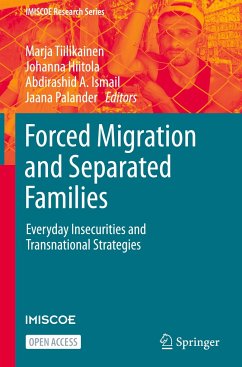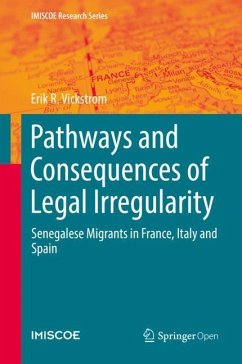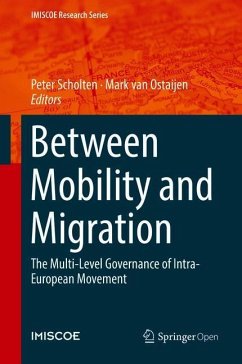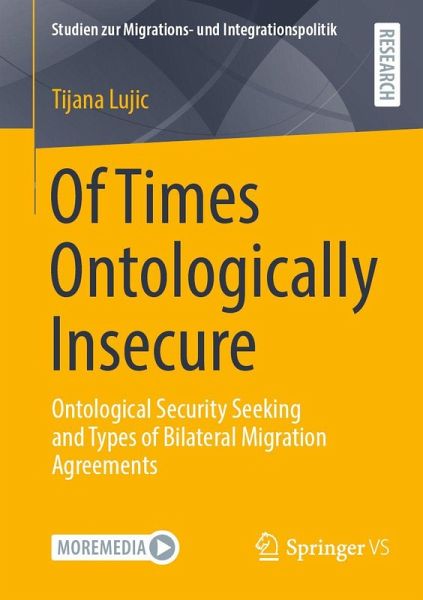
Of Times Ontologically Insecure
Ontological Security Seeking and Types of Bilateral Migration Agreements

PAYBACK Punkte
38 °P sammeln!
Why are bilateral migration agreements (BMAs) concluded the way they are? "Of Times Ontologically Insecure" combines the newest datasets on both bilateral labor agreements (BLAs) and other types of BMAs to get at the question in how far ontological security seeking behavior explains the conclusion of certain types of BMAs.Research to date has held that BMAs are signed to avoid costly domestic political debates and pass specific migration policies while avoiding institutional grid-lock. However, these accounts rarely take into consideration the variance in types of legal instruments concluded. ...
Why are bilateral migration agreements (BMAs) concluded the way they are? "Of Times Ontologically Insecure" combines the newest datasets on both bilateral labor agreements (BLAs) and other types of BMAs to get at the question in how far ontological security seeking behavior explains the conclusion of certain types of BMAs.
Research to date has held that BMAs are signed to avoid costly domestic political debates and pass specific migration policies while avoiding institutional grid-lock. However, these accounts rarely take into consideration the variance in types of legal instruments concluded. Positing that the conclusion of BMAs cannot solely be explained by rational interest-based arguments, this study turns to Ontological Security Studies to analyze the cognitive underpinnings of immigration policy-making on the international level.
The author analyzes how the interaction between domestic coalitions and the government in the United States led to the conclusion of specific types of BMAs with Cuba, Mexico and Guatemala at specific points in time between 1990 and 2020. Anxieties over a border in crisis and a highly polarized domestic public, have led the US to increasingly become ontologically insecure and thus, conclude informal agreements with externalized measures of border and immigration control.
Research to date has held that BMAs are signed to avoid costly domestic political debates and pass specific migration policies while avoiding institutional grid-lock. However, these accounts rarely take into consideration the variance in types of legal instruments concluded. Positing that the conclusion of BMAs cannot solely be explained by rational interest-based arguments, this study turns to Ontological Security Studies to analyze the cognitive underpinnings of immigration policy-making on the international level.
The author analyzes how the interaction between domestic coalitions and the government in the United States led to the conclusion of specific types of BMAs with Cuba, Mexico and Guatemala at specific points in time between 1990 and 2020. Anxieties over a border in crisis and a highly polarized domestic public, have led the US to increasingly become ontologically insecure and thus, conclude informal agreements with externalized measures of border and immigration control.



